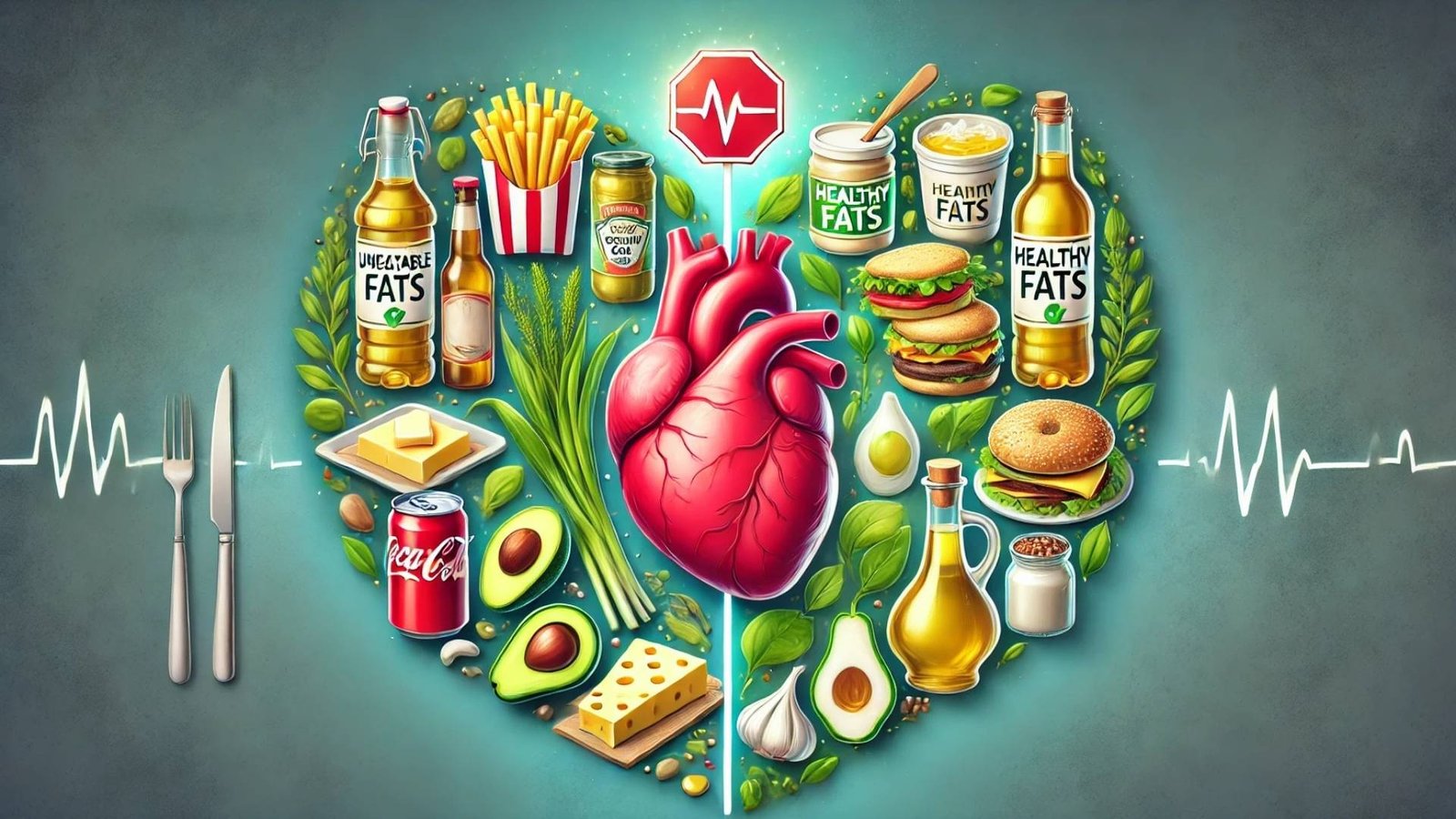For decades, we’ve been warned: Saturated fat is the enemy! We’ve been told that butter, steak, and full-fat dairy are clogging our arteries, leading us down a one-way road to heart disease. Doctors, nutritionists, and health organizations have preached the same sermon: Cut the fat, save your heart.
But what if I told you that this advice might be… completely wrong?
New research is turning everything we thought we knew about heart health upside down. It turns out, the real culprit behind heart disease might not be the foods we’ve been avoiding, but the ones we’ve been replacing them with! Yep, those “heart-healthy” vegetable oils you drizzle on your salad? They could be doing more harm than good.
Let’s break it all down in a way that makes sense—no complicated science talk, just the facts, and the truth your heart actually needs.
The Myth That Just Won’t Die
Saturated fat has been the boogeyman of nutrition for as long as most of us can remember. The theory was simple:
- Saturated fat raises LDL cholesterol (aka “bad” cholesterol).
- LDL cholesterol clogs arteries, forming plaques.
- Plaques lead to heart disease.
Sounds convincing, right? The problem is, this theory was built on shaky ground. Most of the studies linking saturated fat to heart disease were observational studies—basically, researchers asked people what they ate, then checked years later to see who developed heart disease. But these studies don’t prove cause and effect.
Meanwhile, actual controlled experiments—where people were fed different types of fats and monitored—told a very different story. And guess what? They were conveniently ignored for decades.
Meet the Real Culprit: Oxidized Fats
If LDL cholesterol isn’t the main villain, then what is? The answer lies in something called oxidized LDL.
Here’s a simple analogy:
Imagine cholesterol as a bus carrying passengers (fats) around your body. A healthy LDL bus does its job just fine. But when that bus gets damaged (oxidized), it turns into a wreck that clogs up the highway—your arteries.
So, what actually oxidizes LDL? Inflammation, poor diet, and—you guessed it—certain types of fats. This is where things start to get really interesting.
The Role of Inflammation – The Hidden Danger
Inflammation is like a fire in your body, and it plays a huge role in heart disease. Researchers have found that C-reactive protein (CRP), a marker of inflammation, is actually a better predictor of heart disease than LDL cholesterol.
So, what fuels this internal fire?
- Processed foods – loaded with inflammatory ingredients.
- Refined grains – breads, pasta, cereals, and ultra-processed snacks.
- Excess sugar – found in everything from sodas to “healthy” granola bars.
- Seed oils (vegetable oils) – which brings us to the next shocking discovery…
The Shocking Truth About Polyunsaturated Fats
If you’ve been replacing butter and coconut oil with “heart-healthy” vegetable oils, thinking you’re doing your body a favor—think again.
Vegetable oils like soybean oil, corn oil, and canola oil are loaded with linoleic acid, an omega-6 polyunsaturated fat. While omega-6 fats are essential in small amounts, we now consume 50,000 times more than we did 100 years ago!
Why is this a problem? Because oxidized LDL comes from oxidized fats—and linoleic acid is highly unstable. When it oxidizes (which happens easily during cooking or processing), it becomes toxic to our cells, triggering inflammation and—you guessed it—heart disease.
What the Research Really Says
You don’t have to take my word for it—let’s talk real studies.
- The Minnesota Coronary Experiment (1960s-70s)
- Participants were split into two groups: one ate more saturated fat, the other more vegetable oils.
- The vegetable oil group had lower cholesterol… but higher death rates.
- These results were buried for decades because they didn’t support the anti-fat narrative!
- The Sydney Diet Heart Study (1970s)
- Same setup: saturated fat vs. vegetable oil.
- The vegetable oil group had a 62% higher risk of death from heart disease!
- Modern Research Confirms It
- A recent British Medical Journal study (2023) analyzed data from 21 countries.
- The biggest predictor of heart disease? Refined grains and processed foods.
- Meat and natural fats? Not a problem.
The evidence is clear: We were wrong about fat.
How to Eat for a Healthy Heart
So, what should you do? Here’s how to truly support heart health:
1. Choose the Right Fats
✅ Embrace natural fats:
- Butter
- Coconut oil
- Olive oil
- Avocados
- Animal fats (yes, even beef and pork in moderation!)
❌ Ditch the fake “heart-healthy” oils:
- Soybean oil
- Corn oil
- Canola oil
- Margarine
2. Eat Whole, Unprocessed Foods
Real food = real health. Stick to:
✔️ Grass-fed meats
✔️ Wild-caught fish
✔️ Organic veggies and fruits
✔️ Nuts and seeds (in moderation)
3. Reduce Inflammation
- Cut back on sugar and processed grains.
- Prioritize sleep, movement, and stress management.
- Focus on a balanced diet rich in whole, nutrient-dense foods.
Final Thoughts: It’s Time to Rethink Fat
The old “fat is bad” narrative is crumbling under the weight of real science. Saturated fat isn’t the enemy—in fact, it’s been wrongly accused for decades. The real threat? Inflammation and oxidized fats, largely from vegetable oils.
So, next time you’re cooking, don’t fear the butter—fear the bottle of vegetable oil sitting in your pantry. Your heart (and your health) will thank you for it!
👉 What do you think? Have you changed your views on fat over the years? Drop a comment below and let’s chat!

